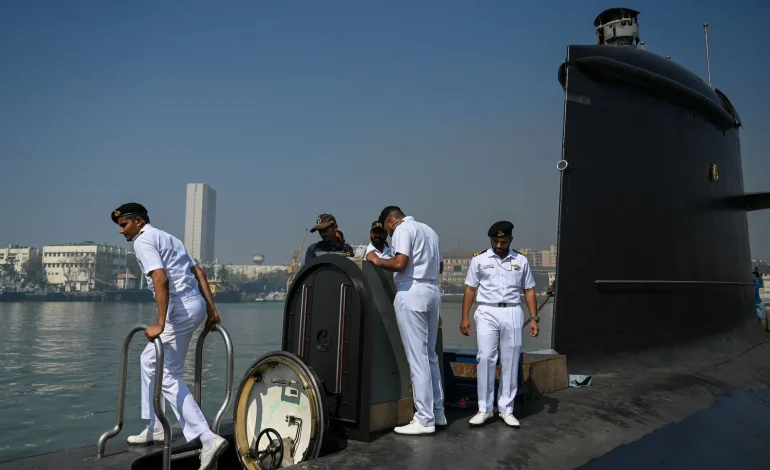India’s ambitious $6 billion plan to build six conventional diesel-electric submarines has been thrown into disarray by contractor complaints regarding the conduct of crucial sea trials, Bloomberg reports, citing sources familiar with the matter.
The delays, expected to extend for at least a year, represent a significant setback to India’s efforts to modernize its navy amid growing Chinese influence in the Indian Ocean.
Two senior officials, who spoke on condition of anonymity due to the sensitivity of the information, confirmed that the project is now a year behind schedule, with further delays anticipated. The holdup stems from approximately half a dozen objections raised by local contractors following sea trials in June evaluating key submarine technologies. The officials declined to name the companies involved.
The complaints range from alleged procedural violations to ambiguities in the sea trial guidelines, raising questions about the motivations behind the objections. Some speculate that contractors may be attempting to delay the process due to fears of losing the contract. The Indian Navy and Mazagon Dock Shipbuilders Limited (MDL) did not respond to requests for comment. Larsen & Toubro (L&T), a major player in the Indian defense industry, stated that the field trial evaluation is ongoing within the Ministry of Defense and declined further comment.
The project’s delay is not only a blow to India’s military modernization efforts but also tests Prime Minister Narendra Modi’s new defense acquisition policy. This policy mandates partnerships with foreign manufacturers, requiring them to transfer technology to Indian firms for the domestic production of military hardware. The Ministry of Defense has established a committee to assess the competing proposals and advise the government on a final decision.
India’s submarine fleet is aging, with half of its approximately 16 Russian and German-made vessels nearing the end of their service life despite numerous upgrades. The planned delivery of the first of the six new submarines, originally slated for the early 2030s, is now delayed. The country also intends to construct two nuclear-powered submarines.
A successful submarine construction program would not only strengthen India’s naval capabilities but also boost its standing as a cost-effective alternative for weapon platform manufacturing, particularly relevant given the surge in European demand for military hardware following Russia’s war in Ukraine. India’s strengthened ties with Western allies, including through the Quadrilateral Security Dialogue (Quad) with the US, Australia, and Japan, further underscore the importance of this project within the broader context of countering China’s presence in the Indo-Pacific. Recent visits from German Chancellor Olaf Scholz and Spanish Prime Minister Pedro Sánchez highlighted the importance of defense cooperation and technology transfer, with both countries expressing support for strategic exports and collaborative defense projects with India.









